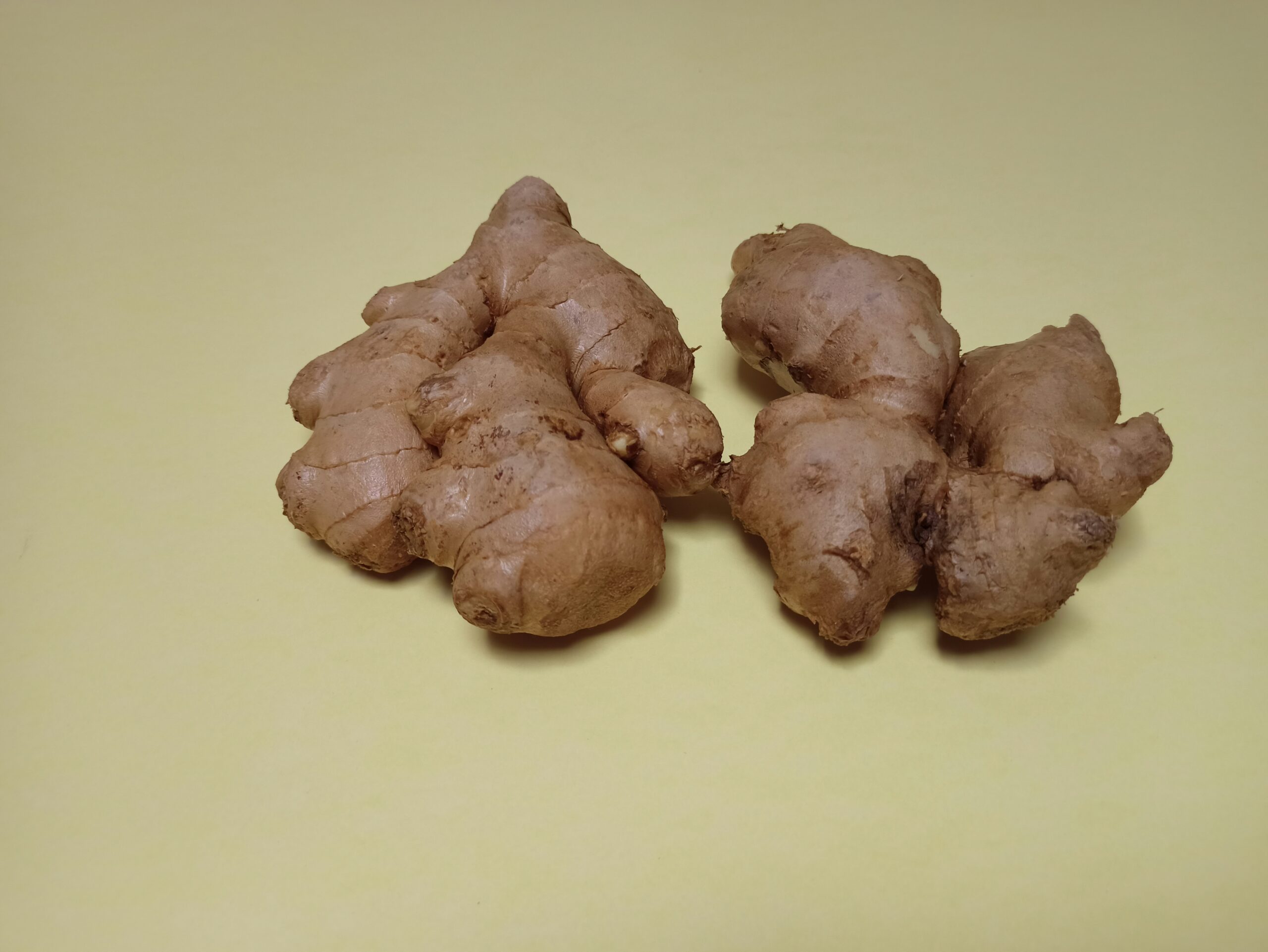The rising rates of cancer have prompted a closer look at how dietary choices can influence health outcomes. It’s important to recognize that what you eat can play a significant role in either increasing or reducing your cancer risk. By prioritizing a whole-food, nutrient-dense diet while cutting back on processed foods and sugar, you can make informed choices to empower your health.
This article explores the intricate relationship between diet and cancer, highlighting key components that can either contribute to or mitigate the risk of developing the disease. From understanding the impact of chronic inflammation to identifying anti-cancer superfoods, you’ll find practical tips on how to cultivate a healthier lifestyle and enhance your well-being through food.
Understanding Cancer Rates
Definition and Current Statistics on Cancer Prevalence
Cancer has become one of the leading health concerns globally. It comprises a group of diseases characterized by uncontrolled cell growth that can invade and spread to other parts of the body. According to the World Health Organization (WHO), cancer is responsible for nearly 10 million deaths annually, making it a critical public health issue. Recent statistics indicate that one in six deaths worldwide is due to cancer, and this prevalence is rising. Individuals are becoming increasingly aware of the importance of understanding cancer risk factors, especially those tied to lifestyle and diet.
Demographic Analysis of Rising Cancer Rates
Certain demographics are seeing alarming increases in cancer rates. It’s particularly concerning to note that younger populations are becoming more affected, which suggests that environmental and lifestyle factors are playing significant roles. The rise in cancer rates among younger adults can often be traced back to factors such as obesity, sedentary lifestyles, poor nutrition, and even stress, reflecting a shift in living habits over the last few decades. Furthermore, studies indicate disparities based on gender, race, and socio-economic status, which complicate understanding and addressing these trends.
Impact of Lifestyle Changes on Overall Cancer Statistics
The link between lifestyle changes and cancer statistics is profound. There’s growing evidence that factors such as increased consumption of processed foods, sedentary lifestyles, and heightened exposure to environmental toxins are contributing significantly to cancer rates. Public health campaigns advocating for healthier eating and active living are vital, as adopting a healthier lifestyle can dramatically lower the risk of developing various types of cancer.
The Food-Cancer Connection
Overview of How Diet Influences Cancer Development
Your diet plays a critical role in cancer risk and development. Consuming a balanced diet rich in fruits, vegetables, whole grains, and lean proteins provides essential nutrients that can reduce inflammation and oxidative stress, both of which are linked to cancer progression. Conversely, diets high in processed foods, sugars, and unhealthy fats can promote inflammatory responses and exacerbate conditions that may lead to cancer.

Mechanisms by Which Food Affects Cancer Risk
The mechanisms by which food influences cancer risk are diverse. Certain foods contain compounds that may prevent cancer cell growth or cause apoptosis (programmed cell death) in existing cancer cells. Additionally, dietary patterns can affect your body’s inflammatory status. For instance, chronic inflammation is a well-known driver in the development of various cancers. Thus, a diet that combats inflammation can help safeguard against cancer.
Research Studies Supporting Dietary Links to Cancer
Numerous studies have highlighted the relationship between diet and cancer risk. For instance, research consistently points to the protective effects of a Mediterranean diet, characterized by high consumption of vegetables, fruits, whole grains, and healthy fats, particularly olive oil. This dietary pattern has been associated with a lower risk of several cancers, showcasing how impactful dietary choices can be in cancer prevention.
Dietary Changes for Cancer Prevention
Guidelines for Reducing Sugar Consumption
Reducing your sugar intake is one of the simplest yet most effective dietary changes you can make to lower cancer risk. Consuming excessive sugar, particularly from processed foods and beverages, can lead to obesity, insulin resistance, and increased inflammation, all of which are linked to a higher cancer risk. Aim to cut back on sugary snacks, beverages, and highly sweetened foods while opting for natural sources of sweetness, such as fruits.
Importance of Limiting Processed Foods
Processed foods often contain preservatives, unhealthy fats, and added sugars that can contribute to chronic inflammation and obesity. Prioritizing whole foods over processed options can greatly enhance your nutrient intake and lower your cancer risk. When shopping, look for foods that are minimally processed and free from artificial additives; your body will thank you for it.

Strategies for Making Healthier Dietary Choices
Making healthier dietary choices doesn’t have to be overwhelming. Start by incorporating more whole foods into your meals, such as leafy greens, whole grains, and lean proteins. Meal prepping can help you stay on track by ensuring you have healthy options readily available. Additionally, experimenting with herbs and spices in your cooking not only enhances flavor but can also provide anti-cancer benefits.
Superfoods and Their Role
Identification of Anti-Cancer Superfoods
While many foods can contribute to a balanced diet, certain “superfoods” have emerged as being particularly beneficial in the battle against cancer. These include berries, nuts, fatty fish, and especially cruciferous vegetables like broccoli, kale, and Brussels sprouts, which have exhibited strong anti-cancer properties.
Nutritional Benefits of Cruciferous Vegetables
Cruciferous vegetables are rich in fiber, vitamins, and phytochemicals that exhibit anti-cancer properties. Compounds such as glucosinolates found in these vegetables can help detoxify carcinogens and limit tumor growth. Increasing your intake of these vegetables can be a tasty way to fortify your meals while contributing to your cancer prevention efforts.
Effects of Mushrooms and Other Superfoods on Health
Mushrooms, particularly varieties like shiitake and maitake, are garnering attention for their potential health benefits, including immune system support and anti-cancer properties. Rich in antioxidants and other bioactive compounds, incorporating mushrooms into your diet can complement your overall cancer prevention strategy alongside other superfoods.
Emphasizing Whole Foods

Definition of Whole Foods and Their Benefits
Whole foods refer to minimally processed foods that are free from artificial ingredients and preservatives. They include fruits, vegetables, nuts, grains, and legumes. These foods are nutrient-dense and often provide a wealth of beneficial compounds that support bodily functions and promote overall health. By prioritizing whole foods, you naturally diminish your intake of harmful additives associated with cancer risk.
Nutritional Density vs. Empty Calories
One of the primary distinctions in dietary choices is between nutritional density and empty calories. Nutrient-dense foods offer significant nutritional benefits relative to their caloric content, while empty calories, commonly found in sugary snacks and processed foods, provide little to no beneficial nutrients. Prioritizing nutrient-dense foods can help you achieve a fulfilling diet that supports your health goals.
Transitioning to a Whole-Food Diet
Transitioning to a whole-food diet can be simple. Start by gradually integrating more whole foods into your meals. Try to replace one processed food item with a whole food daily. Shopping the perimeter of grocery stores, where fresh produce and whole foods are typically located, can help you stay committed to this change.
The Role of Chronic Inflammation
Understanding Inflammation and Cancer Link
Chronic inflammation is increasingly recognized as a major contributor to cancer development. Inflammation can create an environment conducive to cellular mutations and tumor progression. Practicing anti-inflammatory dietary habits is a key aspect of cancer prevention and overall health improvement.

Sources of Chronic, Low-Grade Inflammation
Chronic inflammation can stem from various sources, including poor diet, obesity, lack of physical activity, and environmental toxins. Identifying and addressing these factors in your life can be instrumental in reducing your cancer risk. It’s essential to recognize that many aspects of daily life can contribute to this persistent inflammatory state.
Dietary Strategies to Reduce Inflammation
Incorporating anti-inflammatory foods into your diet can mitigate chronic inflammation. Foods rich in omega-3 fatty acids, such as fatty fish, walnuts, and chia seeds, can help reduce inflammation. Additionally, spices like turmeric and ginger possess powerful anti-inflammatory properties. Making a conscious effort to include these foods in your diet is a proactive step for your health.
Gut Health and Its Importance
The Role of Gut Microbiome in Overall Health
Your gut microbiome, the diverse collection of microorganisms residing in your digestive tract, plays a crucial role in your overall health. A balanced gut microbiome supports digestion, nutrient absorption, and immune function, and it is increasingly being linked to various health outcomes, including cancer risk.
Impact of Poor Gut Health on Cancer Risk
Poor gut health, characterized by dysbiosis or an imbalance of good and bad bacteria, can lead to inflammation and increased cancer risk. Factors such as a diet high in sugar and processed foods, antibiotic use, and stress can negatively affect gut health. To reduce your cancer risk, focus on maintaining a healthy and balanced gut microbiome.
Ways to Enhance Gut Health Through Diet
To enhance your gut health, incorporate a variety of fiber-rich foods, prebiotics, and probiotics into your diet. Foods like fruits, vegetables, legumes, and fermented products (like yogurt and kimchi) can nourish your healthy gut bacteria. A diet that supports a thriving microbiome is not only beneficial for digestion but also essential for cancer prevention.
Effects of the Western Diet
Characteristics of the Standard American Diet (SAD)
The Standard American Diet (SAD) is typically characterized by high levels of processed foods, sugars, and unhealthy fats, along with low consumption of fruits and vegetables. This dietary pattern poses significant health risks, contributing not only to cancer but also to obesity and other chronic diseases.
Consequences of a Diet High in Ultra-Processed Foods
Consuming a diet high in ultra-processed foods is linked to increased rates of chronic inflammation, insulin resistance, and various cancers. Such foods often contain additives and preservatives that may disrupt normal bodily functions, encouraging unhealthy processes that increase cancer risk.
Comparative Analysis with Traditional Diets
When comparing the SAD with traditional diets, the differences become evident. Many traditional diets, such as Mediterranean or Asian diets, emphasize whole foods, fresh produce, and healthy fats—factors clearly associated with lower disease risk. Learning from these dietary patterns can inspire healthier eating habits that mitigate cancer risk.
Metabolic Health and Cancer Risk
Correlation Between Obesity and Increased Cancer Risk
Obesity is a well-documented risk factor for several types of cancer, including breast, colon, and pancreatic cancers. Being overweight can lead to increased levels of insulin and inflammation, both of which may promote cancerous changes within the body. Managing your weight through a balanced diet and regular exercise is crucial in cancer prevention.
The Role of Type 2 Diabetes in Cancer Development
Type 2 diabetes is associated with an increased risk of certain cancers. Insulin resistance, a hallmark of type 2 diabetes, can lead to higher insulin levels, which may spur cancer cell growth. Maintaining metabolic health is essential to reduce cancer risk and improve overall well-being.
Understanding Metabolic Syndrome and Its Impacts
Metabolic syndrome, characterized by high blood pressure, elevated blood sugar, excess body fat around the waist, and abnormal cholesterol levels, further compounds cancer risk. Each component of metabolic syndrome can contribute to inflammation and insulin resistance, emphasizing the importance of maintaining a healthy lifestyle to prevent these conditions.
Conclusion
Recap of the Significant Impact of Diet on Cancer Rates
Your diet plays a pivotal role in influencing cancer rates. With rising cancer statistics prevalent, understanding how your food choices affect your health is increasingly essential. Emphasizing whole, nutrient-dense foods over processed options can significantly reduce your risk.
The Importance of Proactive Health Measures
Proactive health measures, including dietary changes, can empower you to take control of your overall health and well-being. By prioritizing your nutrition, you are taking a step toward preventing chronic diseases such as cancer.
Final Thoughts on the Future of Dietary Practices and Cancer Prevention
Looking ahead, it’s clear that adopting healthier dietary practices has the potential to transform health outcomes across populations. With growing awareness around the food-cancer connection, you have the opportunity to play a significant role in combating cancer and promoting a healthier future for yourself and those around you. Remember, every meal is a chance to nourish your body and support your health. Stem cells have the extraordinary ability to repair and regenerate damaged cells, making them a promising solution for many chronic conditions. However, traditional stem cell therapy is often out of reach due to high costs, the need for donors, or the requirement to travel abroad. Fortunately, a groundbreaking stem cell technology is now available, offering a more affordable and accessible way to experience these benefits.
This technology complements healthy lifestyle habits—like eating well, exercising, and reducing toxins—to enhance the body’s natural healing processes. It accelerates recovery, supports immune function, and combats inflammation by strengthening your cells. To learn how this innovative solution can benefit you, your loved ones, or those facing health challenges, contact me at stemboostx@gmail.com with the subject “AIWNBOX.”


